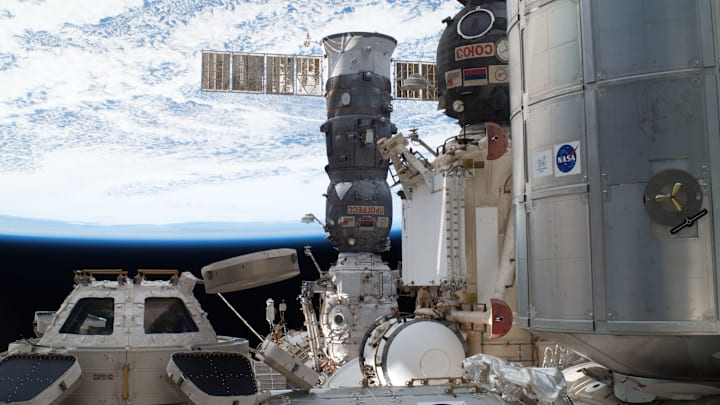Astronauts aboard the International Space Station (ISS) recently reported a mysterious “toxic” smell emanating from the Russian Progress 90 resupply spacecraft shortly after it docked, which caused the crew to investigate to ensure the safety of the ship.
The issue raised questions about the spacecraft’s materials and its interaction with the ISS environment. While there seems to be no immediate danger, the situation has highlighted the challenges of maintaining a secure and habitable environment in space.
The details of the incident
Upon opening the hatch to the Progress 90 spacecraft, Russian cosmonauts detected a strong, unusual odor that they thought might be potentially toxic. The team then quickly sealed the hatch and activated the station’s air-scrubbing systems to maintain air quality. NASA later confirmed that the air remained safe for the crew, and there was no evidence of contaminants spreading throughout the ISS.
Experts now believe the odor was the result of outgassing, which occurs when materials are in confined spaces, like the spacecraft. Progress spacecraft are known for carrying supplies to the ISS, including food, equipment, and fuel, but the specific cause of the odor is still under investigation.
How new technologies are shaping the future of space exploration
Why it might be outgassing
Outgassing is common in space missions and frequently occurs due to exposure to a vacuum or temperature change. These gases can create odors that can be quite strong, especially in the closed-off environment of the ISS. While engineers try to account for this phenomenon when they are designing the spacecraft, unforeseen interactions can still occur.
This incident shows how important pre-flight testing is for spacecraft materials and also raises the question of whether new manufacturing processes resulted in the strange odor.
Lessons learned and next steps
The fast response of the ISS crew and ground teams demonstrates how well-trained the astronauts are and how robust their safety protocols are. By sealing the hatch and deploying air scrubbers, the astronauts ensured that the station’s atmosphere remained safe.
This problem shows how complex space travel can be and how we need to be vigilant about finding potential issues and resolving them quickly to ensure the safety of all space travelers.
The Progress 90 spacecraft
The Progress 90 spacecraft is part of the Russian Progress series, a long-standing line of uncrewed cargo spacecraft designed to resupply the International Space Station (ISS). The Russian space agency Roscosmos operates the spacecraft, which delivers critical supplies, equipment, and fuel to support ongoing missions aboard the ISS. Once they detach from the ISS, they burn up during atmospheric re-entry.
Follow GeekSided to let us know what you think the odor is
